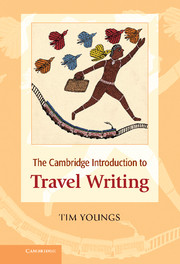Book contents
Chapter 9 - Gender and sexuality
Published online by Cambridge University Press: 05 May 2013
Summary
We’ve had a surfeit of willies in the jungle.
Dea Birkett and Sara WheelerBeing gay in a straight world, even in a hypothetically permissive straight world, is so alienating that the only way to avoid depression is through the assertion of one’s own gay identity.
Edmund WhiteWomen’s travel writing: Critical debates
Chapter 8 showed how postcolonial studies have changed our understanding of travel writing. Gender studies, incorporating theories of feminism, masculinity and sexuality have similarly affected our reading of travel narratives: not only the ways in which we read texts, but the range of texts that we read. In the last quarter of the twentieth century in particular, the growing interest in women’s writing was accompanied by the initiatives of feminist publishing houses such as Virago that led to the recuperation of neglected narratives by women travellers, making them more accessible to general readers and scholars alike. The recovery of women’s travel writing helped give modern-day readers a more accurate sense of women’s participation in travel. Virago’s reprints, especially, have reached a cross-over audience and are also largely responsible for the subsequent wave of scholarly commentary on Mary Kingsley, who travelled in West Africa and the Congo in the late nineteenth century. Nevertheless, the sense of the field being dominated by men continues, and, as we saw is the case with Black writers, has resulted in women having to chart their own path. ‘We’ve had a surfeit of willies in the jungle’, protest Dea Birkett and Sara Wheeler, introducing their collection of new women’s travel writing in the late 1990s. There were, Birkett and Wheeler remember, few role models when they began travel writing a decade previously, but now ‘we’re there – and each year a few more join the band of what we call the Amazonians’. Their proud adoption of a name long associated with a legendary threat to civilisation (and that features, too, in Ralegh’s Discoverie) is typical of the overturning of conventional values that characterises feminist and postcolonial thought.
- Type
- Chapter
- Information
- The Cambridge Introduction to Travel Writing , pp. 131 - 146Publisher: Cambridge University PressPrint publication year: 2013



